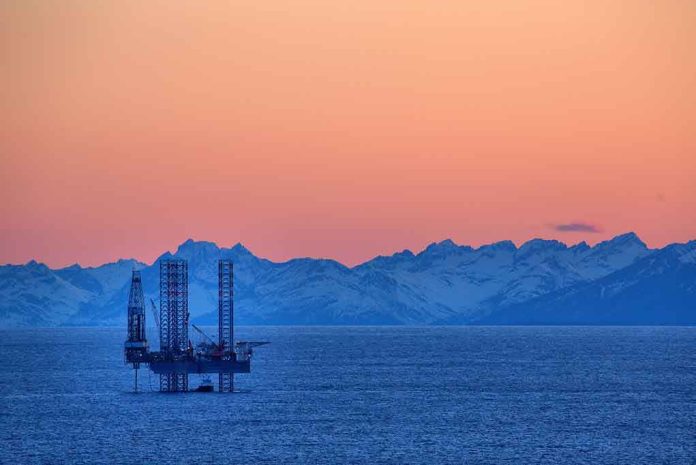
America’s new sanctions on Russian oil represent a bold move to force peace talks, but their effectiveness remains uncertain.
Story Highlights
- US, EU, and UK impose significant sanctions on Russian oil giants Rosneft and Lukoil.
- The sanctions aim to pressure Russia into negotiating an end to the Ukraine conflict.
- China and India’s response to sanctions will be crucial to their success.
- Sanctions have led to an immediate spike in global oil prices.
Unprecedented Sanctions Target Russian Oil Giants
The United States, in collaboration with the European Union and the United Kingdom, has implemented sweeping sanctions on Russia’s oil sector, specifically targeting major companies Rosneft and Lukoil.
These sanctions mark the first time the US and UK have directly targeted Russia’s largest oil enterprises. The goal is to significantly impact Russia’s energy revenues to push Moscow towards a peace deal regarding the ongoing conflict in Ukraine.
The sanctions, announced in October 2025, encompass not only Russian firms but also entities in third countries that facilitate Russian oil exports. This coordinated effort underscores the West’s increasing frustration with the lack of diplomatic progress in resolving the war, which has persisted since Russia’s invasion of Ukraine in 2022.
Implications for Global Energy Markets
As the sanctions take effect, oil prices spiked by 5%, raising concerns over potential volatility in global energy markets. The new restrictions could lead to further disruptions, particularly if major buyers like China and India reduce their purchases of Russian oil. Despite the immediate impact on prices, the long-term effects on global supply chains remain uncertain, with potential shortages or price increases looming, especially in Europe and Asia.
Russia’s economy faces a significant blow as these sanctions threaten their crucial oil revenue. The oil sector is a major source of funding for Russia’s military operations, and a sustained loss of revenue could undermine both the war effort and domestic stability.
China and India’s Role in Sanctions’ Effectiveness
The success of these sanctions largely hinges on the reactions of China and India, which currently account for approximately 85% of Russian crude exports. Recent reports suggest that Chinese oil majors have suspended purchases of Russian seaborne oil, while Indian refiners are significantly reducing imports.
However, the long-term compliance of these nations and their ability to navigate secondary sanctions will be pivotal in determining the sanctions’ overall effectiveness.
While Western policymakers aim to use economic pressure as leverage in peace negotiations, the risk of Russian escalation or entrenchment remains a concern. The geopolitical landscape remains fluid, with significant diplomatic and economic shifts occurring as the sanctions unfold.
Sources:
Sanctions Update October 27, 2025
Key Takeaways from a Consequential Month of Russia-Related Sanctions


